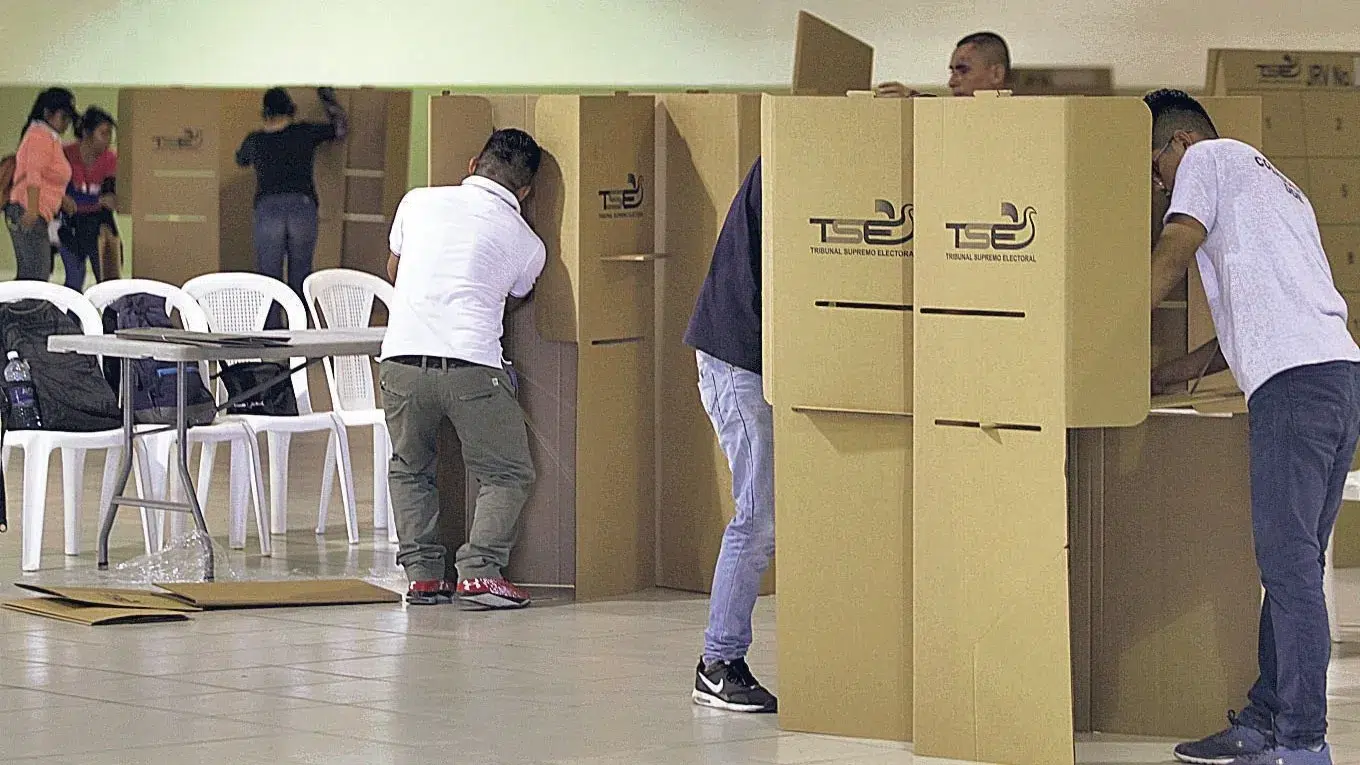The reform to the Penal Code approved last Wednesday by the Legislative Assembly could generate complications for citizens who seek to exercise their right to challenge candidacies, considering that these do not comply with requirements.
This was considered by a criminal lawyer and two representatives of civil society organizations, who added that the reform not only affects the citizens but could also be an intimidating measure against the Supreme Electoral Tribunal itself.
The reform approved by the Legislative Assembly created four new crimes, including hindering candidacies, hindering the right to vote, intervention in the voting system, or not communicating to the authorities the knowledge that a crime of the first three mentioned is being committed.
Of these, the first one is the one that generated more noise to the criminal lawyer Oswaldo Feusier, who considered that the conceptualization of hindering a candidacy could prevent people from feeling confident to denounce candidates who might not comply with the requirements of the law to register for the elections.
“The purpose is to scare people, which is maximized if we take into account the faint-heartedness of the Judicial Branch at this time and an Attorney General’s Office that serves as an arm of the Executive,” added the lawyer.
The road to presidential reelection
With the ruling party in the Legislative Assembly, Bukele began his road to reelection.
May 1, 2021
Blow to the Constitutional Chamber
Deputies of the ruling party Nuevas Ideas and allied parties GANA, PCN, and PDC dismissed the magistrates of the Constitutional Chamber of the Supreme Court of Justice without following due process. They appointed magistrates close to the ruling party.
September 3, 2021
Reinterpretation of the Constitution
The pro-government Chamber issued a reinterpretation of the Constitution so that Bukele could be reelected, establishing that “a person who holds the Presidency and has not been President in the immediately preceding period may participate in the electoral contest for a second time.”
September 4, 2021
TSE submits to the chamber
Magistrates of the Supreme Electoral Tribunal (TSE) issued a statement on their Twitter account stating that they will abide by the resolution of the Constitutional Chamber that endorses Nayib Bukele’s reelection because “they are unappealable and of mandatory compliance.”
September 15, 2022
Bukele announces his candidacy
The President of the Republic, Nayib Bukele, announced in a national chain during the bicentennial of the independence that he will seek reelection for the 2024-2029 period because “the path El Salvador is taking is working.”
January 18, 2023
Penal reforms to “fraud.”
The Legislative Assembly in control of the ruling party approved a batch of reforms to the Penal Code to create the crime of obstructing electoral candidacies, which according to experts, seeks to criminalize those who oppose reelection.
Reforma penal obstaculiza control ciudadano en elecciones
La reforma al Código Penal aprobada el pasado miércoles por la Asamblea Legislativa podría generar complicaciones para ciudadanos que busquen ejercer su derecho a impugnar candidaturas, cuando consideren que estas no cumplen con requisitos.
Así fue considerado por un abogado penalista y dos representantes de organizaciones de la sociedad civil, quienes añadieron que la reforma no afecta solo a la ciudadanía sino que podría ser una medida intimidatoria contra el mismo Tribunal Supremo Electoral.
La reforma aprobada por la Asamblea Legislativa creó cuatro nuevos delitos, incluyendo la obstaculización a candidaturas, obstaculización al derecho al voto, la intervención en el sistema del voto o el no comunicar a las autoridades del conocimiento de que se está cometiendo un delito de los primeros tres mencionados.
De estos, es el primero el que más ruido generó al abogado penalista Oswaldo Feusier, quien consideró que la conceptualización de obstaculizar una candidatura podría impedir que la gente sienta confianza de denunciar a candidatos que podrían no cumplir requisitos de ley para inscribirse de cara a las elecciones.
“El fin es atemorizar, lo que se maximiza si toma en cuanta lo pusilánime del Órgano Judicial en estos momentos, y una Fiscalía General de la República que sirve como un brazo del Ejecutivo”, agregó el abogado.
El camino a la reelección presidencial
Con el oficialismo en la Asamblea Legislativa, Bukele comenzó su camino a la reelección.
1 de mayo 2021
Golpe a la sala constitucional
Diputados del partido oficialista Nuevas Ideas y los partidos aliados GANA, PCN y PDC destituyeron a los magistrados de la Sala de lo Constitucional de la Corte Suprema de Justicia sin seguir el debido proceso. Nombraron a magistrados afines al oficialismo.
3 de septiembre 2021
Reinterpretan la Constitución
Sala oficialista emitió una reinterpretación de la Constitución para que Bukele pueda reelegirse, estableciendo que “una persona que ejerza la Presidencia y no haya sido Presidente en el periodo inmediato anterior, participe en la contienda electoral por una segunda ocasión”.
4 de septiembre 2021
TSE se somete a la sala
Magistrados del Tribunal Supremo Electoral (TSE) emitieron un comunicado en su cuenta de Twitter que establece que acataran la resolución de la Sala de lo Constitucional que avala reelección de Nayib Bukele porque “son inapelables y de obligatorio cumplimiento”.
15 de septiembre 2022
Bukele anuncia su candidatura
El presidente de la República, Nayib Bukele, anunció en cadena nacional durante el bicentenario de la independencia que buscará reelegirse en el cargo para el periodo 2024-2029 porque “el camino que esta tomando El Salvador está funcionando”.
18 de enero 2023
Reformas penales al “fraude”
La Asamblea Legislativa en control del oficialismo aprobó una tanda de reformas al Código Penal para crear el delito de obstaculización a candidaturas electorales, que según expertos, busca criminalizar a quienes se opongan a la reelección.

